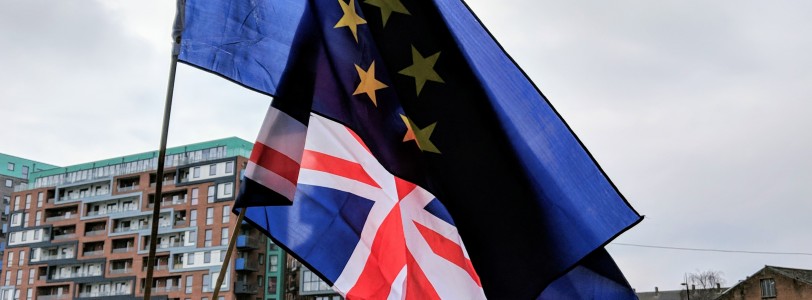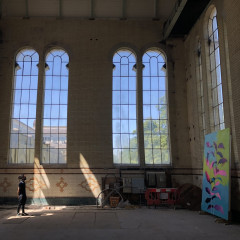Before I start, I just want to gauge the audience a bit:
How many of you here are under 30?
How many of you are students?
Like many of you here, I voted for Remain, and like you, was gobsmacked when I watched the result come in.
There was a lot of navel gazing and cries of racism and ignorance from the remain camp following the result, including myself. It was impossible to believe that we would vote for such an act of self sabotage.
In the 18 months since the vote, and nearly a year to the day since we triggered article 50, I’ve been thinking a lot about Brexit. Not just about how bad the negotiations seem to be going, but about that notion of self-sabotage. Why would people vote for something that will make their lives worse?
When you look at the world today, it becomes apparent that people are angry. They are angry and they are tired of the vast levels of inequality, of constantly being ignored by those who are meant to represent them, and of struggling to survive while being told that we are all in it together.
Such a hostile environment is the perfect breeding ground for nationalism, and ripe for exploitation by those who can see the deep seated level of discontent for the status quo.
Following the referendum, polling studies showed that those who supported remain were largely younger, educated, and middle class. Young people were more generally going to support remain, but those from working class backgrounds less so.
Many latched on to the fact that those who voted leave were older, white and less educated, but I thought an interesting statistic was that there was a 16-point lead for Leave among those who didn’t vote in the last election.
So some of the core leave voters can be categorised as less educated, less well off, disillusioned with politics and nostalgic for a bygone time.
When broken down in an admittedly simplified manner, I feel that perhaps the leave vote wasn’t all that unpredictable. Come 2016 we had endured years of vicious cuts to social care, welfare, and the public sector more generally.
‘But why would they vote to make things worse?’
To these people, how could things be worse? 20% of people in the UK live in poverty. A fifth! 50% of children from the poorest areas in the UK are below the poverty line. Nearly 30% of children from ipswich live in poverty. Food bank usage nationwide is up 14% in the last three years. To them, things can’t be any worse, and the threats of economic uncertainty aren’t going to affect someone who has nothing to start with.
Entire communities that were dependant on industries such as fishing or manufacturing have been decimated, and we have a government that is failing to invest, or even show that they’re remotely concerned. A government, who six years after being elected to implement these deeply damaging cuts throw out a hugely divisive question to a largely ill-informed public in an attempt to quell in-fighting and fight off a growing UKIP.
What the country was then subjected to bordered on the embarrassing - with both sides absolutely failing to offer clear, simple, and most importantly, honest information about the EU. Remain chose to focus purely on the doom and gloom of leaving, which played exactly into the hands of Leave, who, let’s not forget, even got away with writing lies on the side of a bus without appropriate scrutiny.
I would have preferred to see a remain campaign that went as follows:
“Look, the EU isn’t perfect, far from it. There are still issues around transparency, some of the quotas aren’t fair and we have legitimate concerns around the continual slicing away of national sovereignty. BUT, as the world’s largest market, the promoter of peace on the continent for over 70 years and as an organisation that has shown willing to be both flexible and transformative, we are better off working within to resolve these issues than outside beholden to them.”
To me, a lot of the issues raised around remaining in the EU couldn’t be addressed because they were actually the result of policy decisions made by the Government. The NHS crisis isn’t the result of immigrants, it’s underfunding. The lack of housing is compounded by the complete failure of the Government’s affordable housing policy. The belief that the private sector will pick up the jobs cut in the public has long proven to be a fallacy, but dogma guided those decisions over a rational economic recovery plan, and it’s easier to let the EU take the blame than admit you’d got it wrong.
I think what Brexit, and indeed the US elections have forced the liberally minded to accept - or hopefully at least acknowledge - is that we cannot just assume people agree with us. More importantly, we have to be willing to engage with people who don’t agree with us in a manner that isn’t condescending or precious.
We are at times too quick to jump on the ‘politically correct’ bandwagon, and shout people down as ignorant, racist or xenophobic. And while it is important to call those attitudes out, it is equally important to understand why those attitudes are held - how much of it is from a genuine place of hatred, and how much of it is regurgitated from the media, or a catch-all scapegoat for larger societal issues?
Instead of promoting debate, facilitating discussion and encouraging understanding, both sides drew their line in the sand and shouted at each other from across it. The concept of a ‘secret Brexiteer’ is indicative of how unreceptive and indeed, how positively hostile remainers had become – I’d argue just as toxic as those we so keenly looked down upon.
Brexit has now left the realms of political belief and appears to exist on a purely emotional plane. When you hear the word you either swell with pride or rage at the lunacy. Facts and figures are rejected in favour of gut feeling as the head fights with the heart. In many ways this is a matter of love and logic, we just have to unpick the two in order to address each with time, care and attention before any more cuts turn to scars.
For better or worse, this country is due to leave the EU in 2019, and when that happens we are all going to be affected. It won’t be selective in who loses their right to borderless travel, or protection from the Government by the European Court of Justice.
We run the risk of becoming an island, split by factions over a decision made in absence of fact. We now need to row back the bitterness and the browbeating to look at what has been presented before us, and demand we be permitted the opportunity to make a decision with the facts.
It is the only way this situation can possibly end well.










This country is a bit of tragic mess. I just want to block it out sometimes and pretend that it never happened.